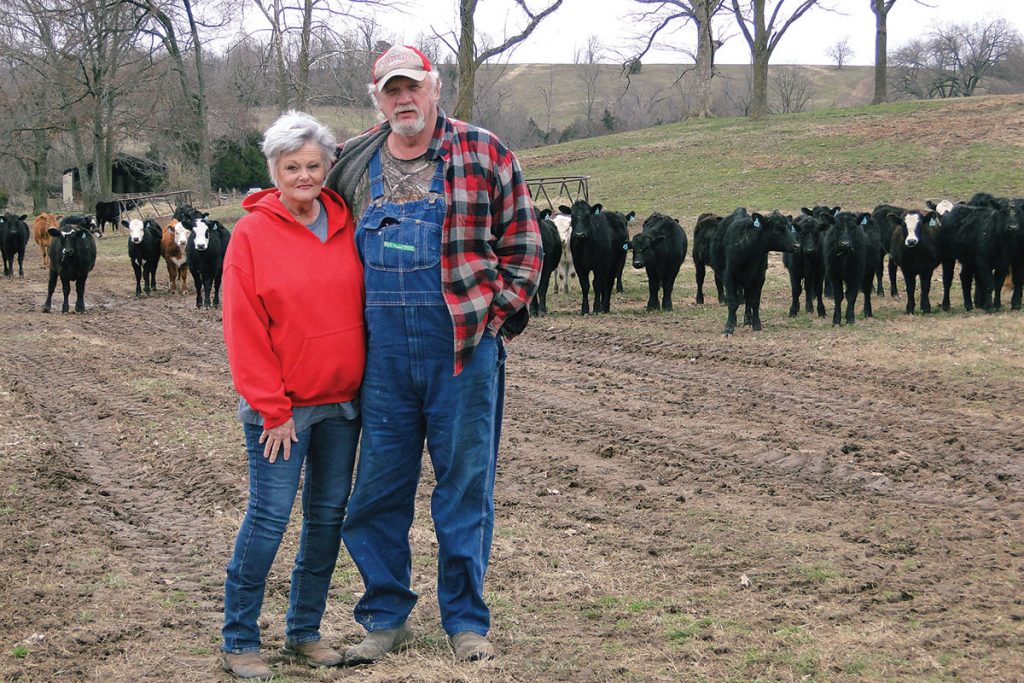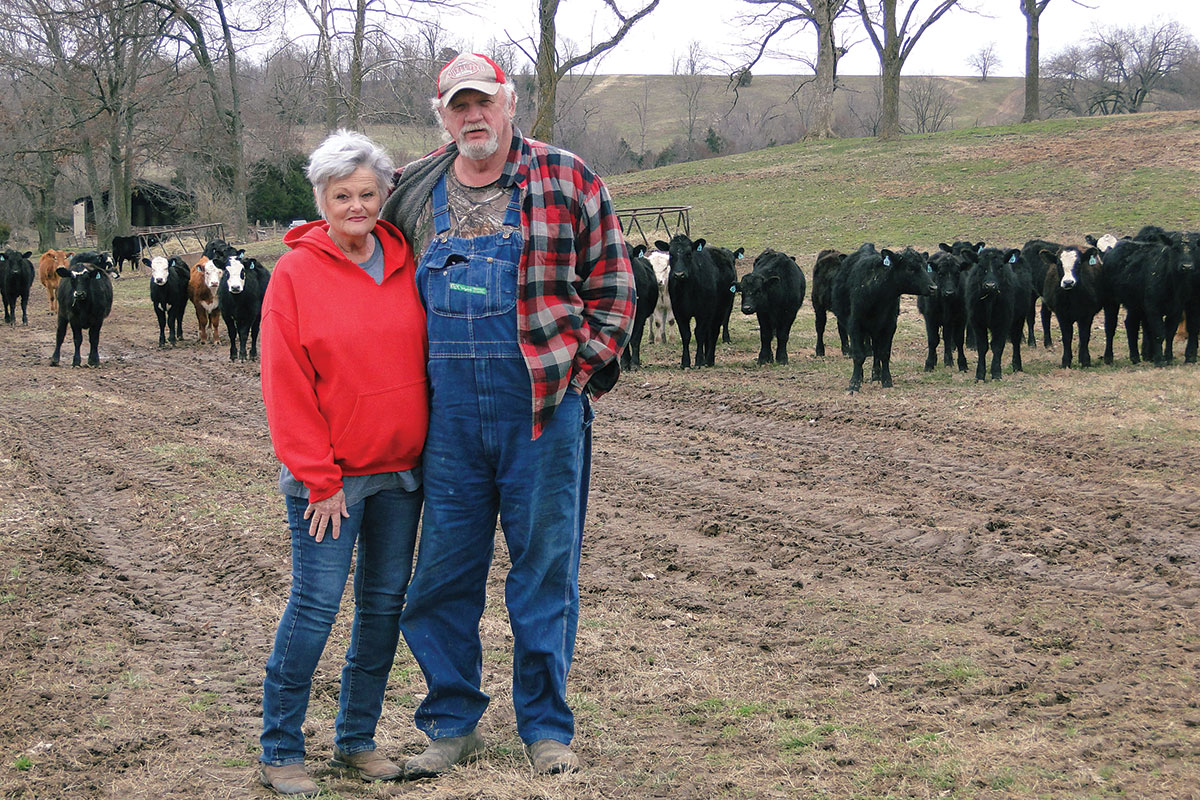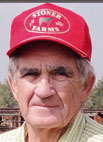
Kenny Underdown has built his farming operation around land that was once sharecropped by his father
When Kenny Underdown of Alpena, Ark., was young, his father Eugene worked in a canning factory and was a sharecropper. Kenny met his future wife Pam in grade school. When they began dating, they often passed the farm where his father sharecropped.
“Kenny always used to say one day he would own that farm, and now we do,” Pam said.
Kenny’s off-the-farm job until retirement was building houses, first as a carpenter’s helper in high school and then independently since 1979 while Pam spent many years working in the garment industry and later a few at the Harrison Hospital. Regardless, both were raised on farms and wanted their own. Throughout their married life, they purchased rundown and overgrown farms that they improved and then later sold, putting the money back into buying more land. According to Kenny, he’s not sure who was more excited, Kenny or Eugene, when Kenny and Pam were able to purchase the old sharecropping farm in 1995.
They have since added to the land and now have 940 acres dedicated to raising commercial beef. When purchased, the land was so overgrown that they were able to cut timber and used it to build their home.
Kenny and Pam run 200 mommas, with 75 percent of them being black and the rest of mixed colors. The cows are bred by four Angus bulls because Kenny believes black cattle sell better. An unusual farming protocol is the couple preferring one long calving season that begins in October and ends in March. Bulls are selected for easy calving, a choice that supports the long calving season since the two herds are not always close to the house but rather in large, but crossed fenced, pastures further out.
“It’s just me and my wife that run this place and we don’t have the time and the energy to handle two calving seasons, so this is what works best for us,” Kenny explained.
One result of this system is that they have calves of three different sizes, which they typically sell locally in June, August and late November. The market, however, is the deciding factor for the timing of sale. Occasionally, the calves are sold just after weaning though most are sold later having been bunk broke with a ration Kenny mixes himself. Bulls are also sold at market every three or four years in order to keep the bloodlines clean, while culled females are sold when not producing a good calf or other health issues arise.
Kenny and Pam hire help when working calves. All calves receive their shots with Kenny, believing one of the most important elements is combating pneumonia. Bull calves are castrated or banded with Kenny preferring castration because he believes it is more certain. Having help is important for the couple as a safety practice as was building better working pens in order to have an easier time getting out of the way when necessary. The cattle are sprayed every two weeks for flies after Kenny throws out pellets so that the process is easy with spraying supported by back rubs.
“I don’t know exactly why, perhaps because of the warm winters, but flies the last three or four years have been a much more serious problem,” Kenny said.
Kenny strongly believes the only way to make a profit is to be as self-sufficient as possible. Consequently, for the last 15 years Kenny has raised both corn and alfalfa in addition to mostly Bermuda hay on 120 acres. Corn, on the other hand, is grown on 10 acres which are planted using Haflinger horses and harvested with a New Idea two-row corn picker from the 1970s. An additional 10 acres is devoted to alfalfa with an alfalfa field lasting about five years before it needs to be plowed up and reseeded. The farm typically produces 50 round bales of alfalfa in addition to a thousand square bales, 150 bushels of corn per acre and 800 round bales of Bermuda hay.
Kenny uses a New Holland mixer hammer mill. The ear corn and the cobs are ground and mixed with the alfalfa for a good quality ration. Though the husks are rather low in nutrition, they make the ration more palatable so the cattle are eager to eat it. Calves are fed the ration after weaning until being sold with the bulls receiving some when not in service and the cows receiving a 20 percent salt mixture in early spring until the grass comes on.
Through the years, Kenny and Pam have taken advantage of water-based government programs. Those programs help drilled wells and support the implementation of spring boxes that piped water from tanks to where it is needed.
Like many farmers, Kenny was deeply influenced by his father who, above all else, taught him to love the hard work it takes to make a farm thrive. The other important influence was his ag teacher, Lanty Frazier, who not only introduced him to all areas of agriculture but instilled the importance of honesty. Those two characteristics gave Kenny what he needed to succeed.
Kenny and Pam have two children and five grandchildren, the oldest being an ag communication and ag leadership double major senior at the University of Arkansas. The whole family loves the farm though each grandchild pursues individual specialized interests whether that is fishing or being around the animals or showing pigs. Their daughter Victoria lives in a house on an edge of Still Springs Farm while their son Chad lives in Elkins. The Underdown family live in the same area and are the center of life for this beautiful farm.







